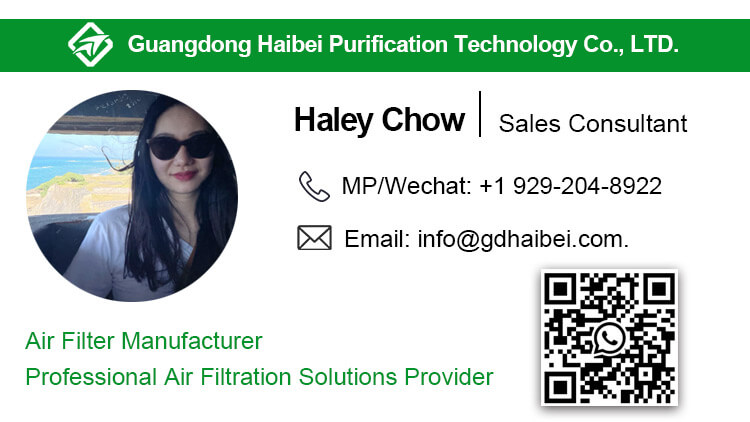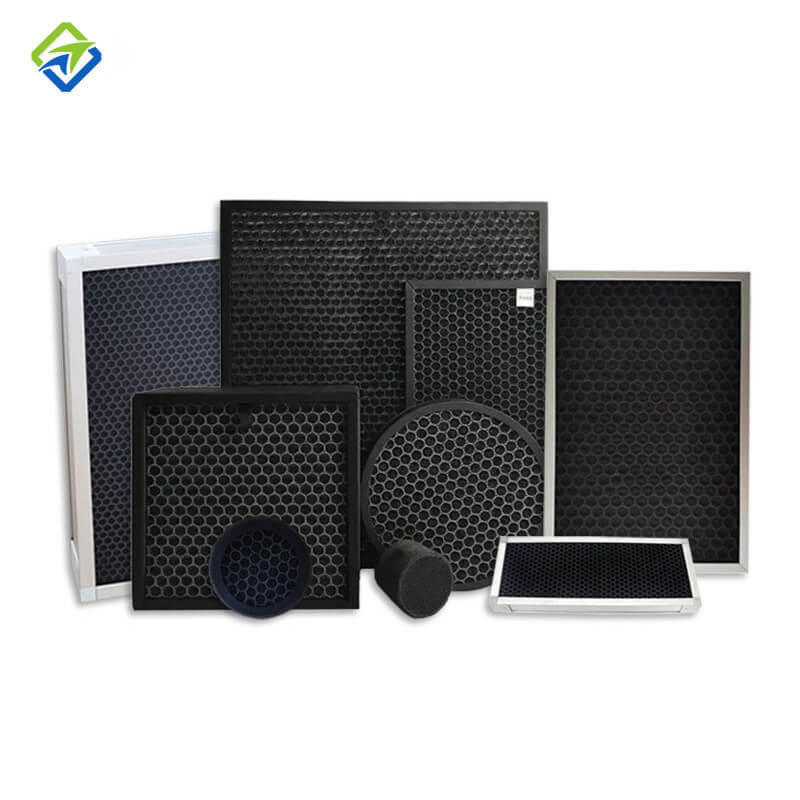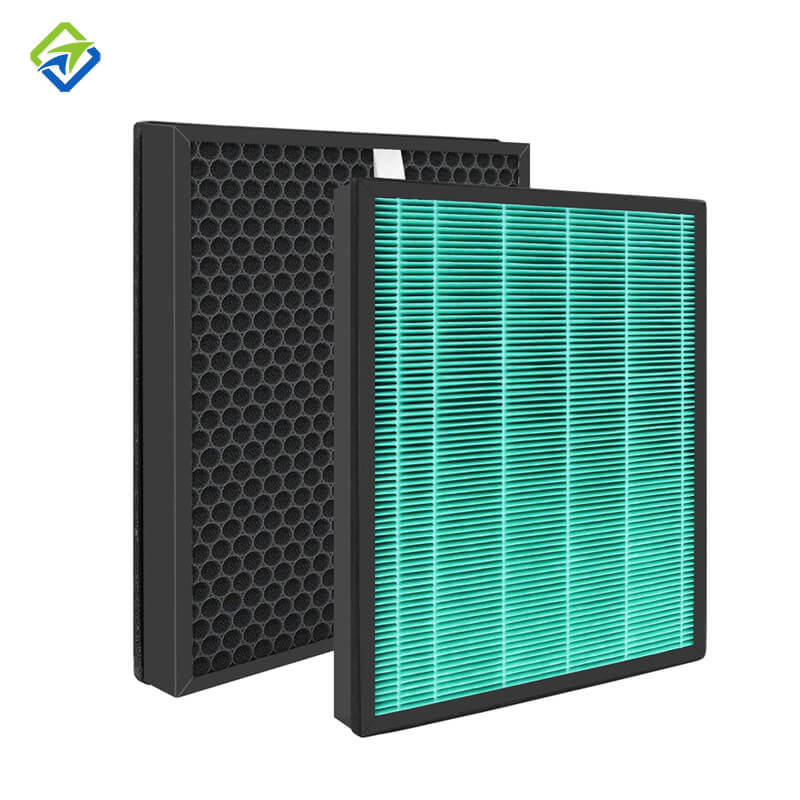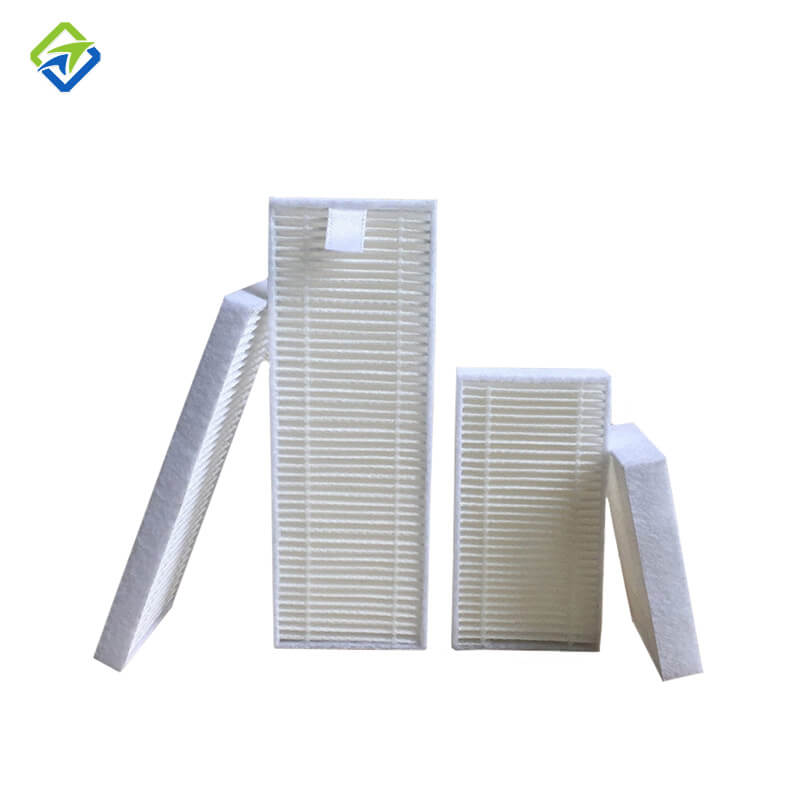Carbon Filter vs HEPA Filter: Which One Suits Your Needs Better?
When it comes to choosing an air purifier filter, many homeowners and renters find themselves stuck between two popular options: carbon filters and HEPA filters. Both work to improve indoor air quality, but they target different air pollutants. To pick the right one, you need to focus on what you want to remove from your air most—odors or allergens and large particles.
1. Carbon Activated Filters: The Best Choice for Odor Removal
Activated carbon filters excel at trapping and neutralizing unwanted odors. This is because the carbon material has a porous structure that absorbs gas molecules, which are the main cause of smells.
If you often deal with kitchen fumes from stir-frying, lingering pet odors from cats or dogs, smoke smells (even secondhand smoke), or chemical odors from new furniture or paint, an activated carbon filter will be far more effective than a HEPA filter. For example, in homes where someone cooks spicy or savory dishes regularly, a carbon filter can quickly reduce the lingering smell that sticks to walls and fabrics. It also works well in small spaces like bathrooms, where musty odors tend to build up.
2. HEPA Filters: Ideal for Allergens and Large Particulates
HEPA (High-Efficiency Particulate Air) filters are designed to capture tiny, solid particles in the air—something carbon filters can’t do well. According to industry standards, a true HEPA filter can trap at least 99.97% of particles as small as 0.3 microns.
If your main concern is removing allergens like dust mites, pollen, pet dander, or mold spores, a HEPA filter is the way to go. It’s also great for reducing bacteria and large particulates like dust bunnies or debris from renovation work. For families with allergy sufferers or asthma patients, a HEPA filter can make a big difference in daily comfort—you’ll notice fewer sneezes, itchy eyes, or congestion. In areas with high humidity (where mold grows easily) or homes with shedding pets, a HEPA-equipped purifier becomes even more essential.
3. How to Decide Based on Your Location and Lifestyle
Your location and daily life play a key role in choosing between the two.
If you live in a city with heavy cooking culture (like many areas in East Asia) or near areas with frequent wildfires (common in parts of North America and Australia), a carbon filter will help fight cooking or smoke odors.
If you reside in a dusty area (such as dry regions in the American Southwest or parts of Central Asia) or have pets, a HEPA filter is more practical.
For instance, a family in Beijing (where stir-fry is a daily meal) might benefit more from a carbon filter to handle cooking fumes. On the other hand, a household in Phoenix (known for dry, dusty weather) would get more use out of a HEPA filter to keep dust levels low.
4. Filter Maintenance: Keep Them Working Well
Even the best filters lose effectiveness over time—here’s how to keep them in top shape:
Activated Carbon Filters: Replace every 3–6 months (sooner if you notice odors coming back). Some reusable carbon filters can be “recharged” by placing them in direct sunlight for 4–6 hours (avoid doing this with pre-filtered carbon units, as it may damage the pre-filter).
HEPA Filters: Replace every 6–12 months. You can check if it’s time by looking at the filter—if it’s visibly gray or dusty, or if your air purifier’s “filter change” light turns on, it’s time to swap it. Never wash a HEPA filter, as water will destroy its particle-trapping structure.
5. Common FAQs: Clear Up Confusion
Q: Can a carbon filter remove dust or pollen?
A: No—carbon filters only target gas molecules (odors). They can’t trap solid particles like dust or pollen.
Q: Do HEPA filters help with wildfire smoke?
A: Yes! Wildfire smoke contains tiny particulates (like PM2.5) that HEPA filters can capture. For smoke odors, pair it with a carbon filter.
Q: Are “HEPA-type” filters the same as true HEPA?
A: No—“HEPA-type” or “HEPA-like” filters don’t meet the 99.97% particle-trapping standard. Always look for “true HEPA” on the product label.
Final Tip
If you need to tackle both odors and allergens, look for air purifiers that combine activated carbon and HEPA filters—they offer the best of both worlds. No matter which you choose, make sure to replace the filter regularly (follow the manufacturer's instructions) to keep it working effectively. For specific needs (like severe allergies or strong odors), check the filter's"grade" (e.g., "medical-grade HEPA" for sensitive users) before buying.
Explore our full range of air filters and find the perfect solution for your needs. If you need assistance purchasing filters or confirming filter size, please call +1 929-204-8922 (9-5 EST Monday-Friday) or email info@gdhaibei.com.











